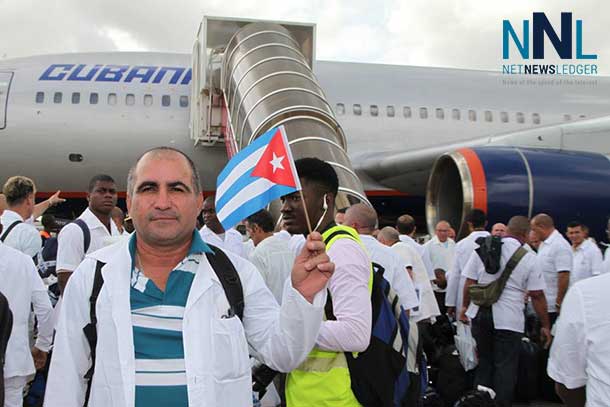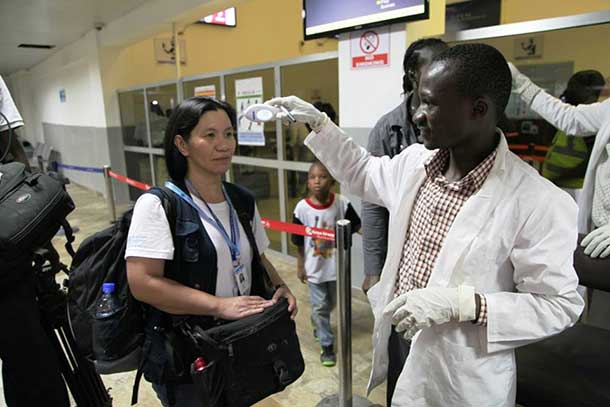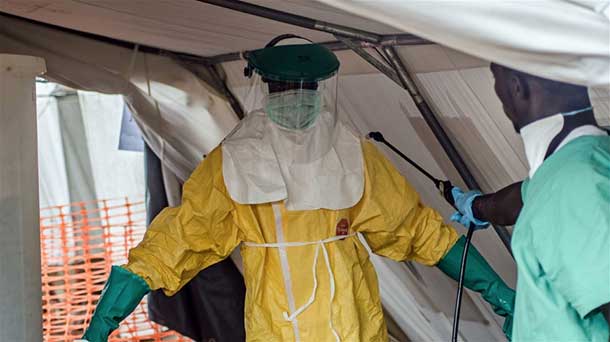

NEW YORK – HEALTH – As the head of the United Nations mission working to stop the Ebola outbreak continued his visit to hard-hit countries in West Africa today, the world body’s humanitarian wing said funding for the international response is lagging, with only 26 per cent of the $988 million needed having been received thus far.
CDC: Dallas Ebola patient “taken a turn for the worse”
Dr. Thomas Frieden, director of the U.S. Centers for Disease Control and Prevention, said the first patient diagnosed with Ebola in the U.S. has “taken a turn for the worse.” The patient now being treated at Texas Health Presbyterian Hospital, was sent home after his first visit to the emergency room, despite telling a nurse there that he had just been to Liberia.
“Many people have pointed out that initially the individual was not diagnosed,” Frieden told a news conference. “We’ll be doing a lot more in the coming days and weeks to inform and empower not just doctors and nurses, healthcare professionals of all kinds, to think about Ebola,” he wend on to say. The governments of Guinea, Sierra Leone and Liberia are struggling to contain the worst outbreak on record of the deadly hemorrhagic fever.
The World Health Organization on Friday updated its death toll to at least 3,439 out of 7,492 suspected, probable or confirmed cases.
Ebola Crisis Grows
The head of the UN Mission for Ebola Emergency Response (UNMEER), Anthony Banbury, is in Sierra Leone today on the second leg of his visit to the most affected countries, UN spokesperson Stephane Dujarric told reports in New York today.
Mr. Banbury is in West Africa to jumpstart UNMEER’s work. After arriving at the mission’s headquarters in Accra, Ghana, earlier this week, he spent the past two days assessing the situation in Liberia. Next week, he will travel on to Guinea.
Regarding the funding of the response, the UN Office for the Coordination of Humanitarian Affairs (OCHA) said today that 26 per cent, or just $256 million, of the total $988 million needed, has been received.
An additional $163 million has been pledged to activities in the plan that covers immediate humanitarian support to the region, particularly Guinea, Liberia, and Sierra Leone.
The UN Central Emergency Response Fund (CERF) has so far committed $13.4 million to support food and health operations as well as the regional humanitarian air service.
Meanwhile, in Geneva today, the World Food Programme (WFP) Regional Director, Denise Brown, briefed the press via audio link from the Liberian capital, Monrovia.
Despite best efforts, “the [Ebola] virus is running faster than the international community,” said Ms. Brown, adding that concerted efforts to get the virus under control had not succeeded- it was way ahead of us, she added.
Calling it an unprecedented situation, Ms. Brown urged the international community to take exceptional measures to collectively get in front of the virus and to stop it.
For its part, WFP is delivering food, planes, helicopters, ships, and flying in aid workers but the virus is spreading exponentially, and the response must increase accordingly. The agency is building two treatment centres in Monrovia which should be ready by the end of October with 400 beds. But several other components must align. For example, as treatments centres are build medical professionals need to come and staff them, she added.
She also expressed concern over increasing food prices, which WFP has been monitoring along with the Food and Agricultural Organization (FAO). Both agencies are collecting data and are expected in a week to provide a snapshot of the food security situation.
Video by Reuters



